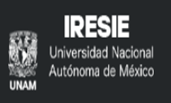RECONHECIMENTO DE SABERES DO TRABALHO E CERTIFICAÇÃO PROFISSIONAL: A EXPERIÊNCIA DA INGLATERRA / Recognition of work-based knowledge and vocational certification: the experience of England
Palavras-chave:
Reconhecimento de saberes, Certificação profissional, Formação Profissional, Inglaterra | Recognition of knowledge, Vocational qualification, Vocational Training, EnglandResumo
This dissertation aims to analyse vocational qualification devices developed by the Government of England, which enable the recognition of knowledge constructed by the subject during the work experience. This study was carried out by means of bibliographical and documentary research, which sought to identify elements in the discourse of the State, the business community, the researchers and workers about the tensions involving the creation of devices of vocational qualification and recognition of knowledge in the country. Whereas the development of mechanisms aiming the recognition of work knowledge cannot be released from discussions on education and vocational training, the research begins with a historical analysis on the development and changes of policies that deal with vocational qualification. It was noted that the collapse of the Taylorism and Fordism models of production, accompanied by the global economic recession that began in 1973, resulted in the growth of State intervention in initiatives in the vocational qualification domain. In this context...
___
Esta dissertação tem como objetivo analisar os dispositivos de certificação profissional elaborados pelo governo da Inglaterra, que procuram viabilizar o reconhecimento de saberes construídos pelos sujeitos durante a experiência de trabalho. Este estudo foi desenvolvido por meio de pesquisas bibliográfica e documental, nas quais se buscou identificar elementos nos discursos do Estado, do empresariado, da academia e dos trabalhadores sobre as tensões que envolvem a criação de dispositivos de certificação profissional e reconhecimento de saberes no país. Considerando que o desenvolvimento de mecanismos voltados para o reconhecimento de saberes do trabalho não pode ser desvinculado das discussões sobre a educação e a formação profissional, partiu-se de uma análise histórica sobre a elaboração e as modificações de políticas que tratam da qualificação profissional. Constatou-se que o colapso do modelo de produção taylorista-fordista, acompanhado pela recessão econômica mundial iniciada em 1973, implicou no crescimento da intervenção do Estado na condução de iniciativas nessa esfera. Nesse contexto...













